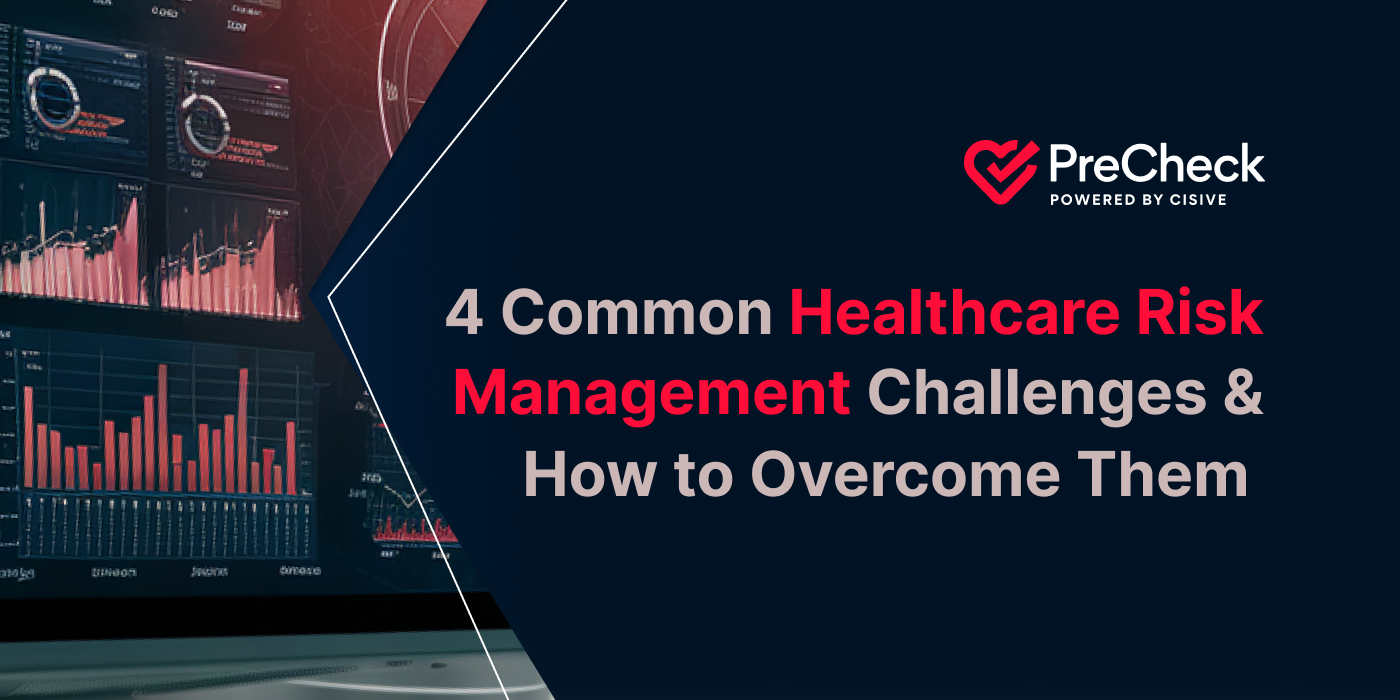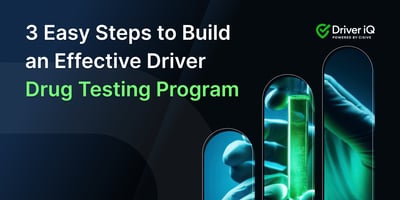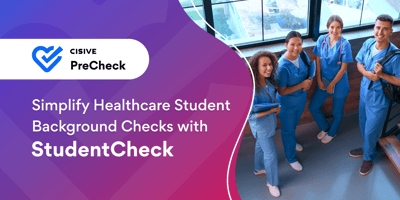

Motor carriers need to hire drivers who are safe and reliable, both for the public’s safety and...

Some organizations using older healthcare risk management software might encounter problems with dated technology and poor data fidelity. Modern systems integrate multiple sources of data and provide easy-to-use tools to assess and analyze risks across the entire organization.
Key TakeawaysHere are the key things you need to know about healthcare risk management software:
|
Healthcare risk management software is a centralized solution for managing the systems and processes that reduce risks in a hospital or clinic.
Risk management involves putting specific procedures and systems in place at both the clinic and administrative levels. This can involve developing procedures for assessing and monitoring risks, setting up ways to mitigate and prevent risks, and creating official channels for reporting any newly identified risk factors.
Effective management of risks includes both preemptive and reactive processes. Recognizing potential future problems and working to prevent them helps reduce emergencies, but processes should also be in place to handle unexpected events.
Preemployment screening can be part of risk management in a healthcare setting. Because healthcare employees handle sensitive information, deal with vulnerable patients, and often complete work duties under stressful conditions, choosing the right workers for your facility is essential.
Healthcare background checks include more rigorous screening than many standard background checks. In addition to criminal record searches and credit reports, you can also look into professional certifications, employment and education verification, and professional references.
A 2022 study found that 38.1 percent of healthcare workers lied on their resumes about employment, education, or professional references, so these kinds of checks have become an essential part of the hiring process.
Other available screening options include misconduct and abuse registries, driving records, sanction screenings, and health testing results.
Drug screening, both during the employment process and on a periodic basis, provides peace of mind and keeps your organization in compliance with rules requiring this type of testing.
For some jobs in the healthcare industry, occupational health tests may also be required. These physical health screenings help reduce job-related injuries and lower organizational risk.
Health management software that's integrated with drug screening and occupational health screening results lets you see the testing status of essential employees at a glance.
Tracking current employee compliance is another area where healthcare risk management software can help.
Licensing and certifications in the healthcare industry often require periodic renewals, and this software can track when each employee gets recertified or registered to ensure everyone on staff has updated credentials. This can be tracked using state credentialing database information as well as through the National Practitioner Data Bank.
Recommended Reading: Sanction Screening: A Key Tool for Safer Healthcare
A good healthcare risk management software solution collects all your safety, compliance, and enterprise risk data in one place. The system should be robust enough to handle cross-disciplinary analysis, and it should allow for sharing across different departments to ensure everyone in your organization has access to the same information.
Efficient collection and sharing of data using healthcare risk management software makes it easier to address potential issues early and makes risk mitigation and prevention simpler. Ease of use is an important concern, and employees should be able to quickly input new data points or update records.
A good healthcare software system evolves and adapts to changing circumstances. For example, if compliance laws or reimbursement regulations change, your software should be able to easily integrate those changes into your existing workflow.
Things your risk management software might manage include:
With so much data at your fingertips, you can analyze key aspects of your organization to find new ways to improve patient outcomes. You may discover areas where more training is required or ways to streamline the hiring process to onboard more credentialed, qualified employees.
Recommended Reading: Top 5 Efficient Immunization Tracking Systems

Here are some key benefits of using healthcare risk management software in your organization:
Prevention is the cornerstone of any healthcare risk management plan, and good risk management software can help your organization identify potential risks and mitigate them before they become a major problem.
Early intervention to reduce potential short-term and long-term risk factors prevents unexpected emergencies. A reliable healthcare software system takes care of managing the details and lets you focus on more important things.
Unexpected risks can damage an organization's finances, affect employee satisfaction, and hamper efficiency. Ignoring risk management could subject your organization to liability and leave it out of compliance with local and federal regulations. This could lead to fines or sanctions, which could snowball into larger issues down the line.
In general, business processes run more smoothly when a risk management plan is in place, and good risk management software helps you formulate and carry out the processes necessary to protect your business.
Healthcare organizations rise and fall on reputation, and negative press can affect employees and patients alike. Employees are happier working in a safe, reliable environment, and patient trust is improved when internal systems are designed to provide peace of mind.
Identifying and mitigating potential issues early helps prevent bad reviews and improves overall patient and employee satisfaction. Safety, security, and risk management are all part of a comprehensive brand reputation plan.
Ensuring all employees meet your standards and credentials are kept up to date reassures patients that the care levels at your hospital meet their needs.
Managing risks in your healthcare organization improves safety and efficiency, which can help maintain good employee morale. This reduces employee turnover and makes it easier to recruit the best new candidates when you have a job opening.
Recommended Reading: Credentialing's Role in Healthcare Reputation Management
Managing risk in a healthcare setting involves a few unique challenges. Here are some of the issues you may face when implementing a risk management plan in your hospital or clinic:
While there are plenty of sources of risk in a healthcare setting, risk management doesn't have to be overwhelming. Healthcare risk management software helps you prevent and deal with unexpected risks while keeping everyone in your organization focused on the same safety, privacy, and compliance goals.
Digitized records simplify access and improve data accuracy. When it comes to providing compliance data to regulatory boards, having all the data in one place makes it easy to complete necessary reporting without digging through filing cabinets, making physical copies of forms, or sending paperwork via standard mail service.
A software service accessible to all employees lets individual staff members check their records for compliance and screening results. You can set up alerts to let employees and managers know when recertifications, immunizations, or other periodic updates are required.
A good healthcare risk management software system includes reliable support. Running your own internal system could lead to issues when something goes wrong, especially if you don't have someone on staff 24 hours a day to answer questions or handle problems.
Using a software service with a track record of excellent customer support provides peace of mind regarding compliance and data safety issues.
PreCheck provides high-quality healthcare risk management software and solutions. From new employee background checks to ongoing license monitoring, you get a suite of tools and services tailored to your organization's specific needs.
Some of the healthcare talent solutions PreCheck offers include:
Schedule a consultation today to discuss how PreCheck can help you manage risks within your organization.
Author: Cisive Staff
Bio: Contributed by a member of our staff with expertise in background screening for highly regulated industries.
Let's Connect on LinkedIn
Motor carriers need to hire drivers who are safe and reliable, both for the public’s safety and...

Pre-employment drug screening is an important step in making sure you have the right candidates for...

In this Product Highlight, we’ll review key tools to consider in your screening program, as well as...